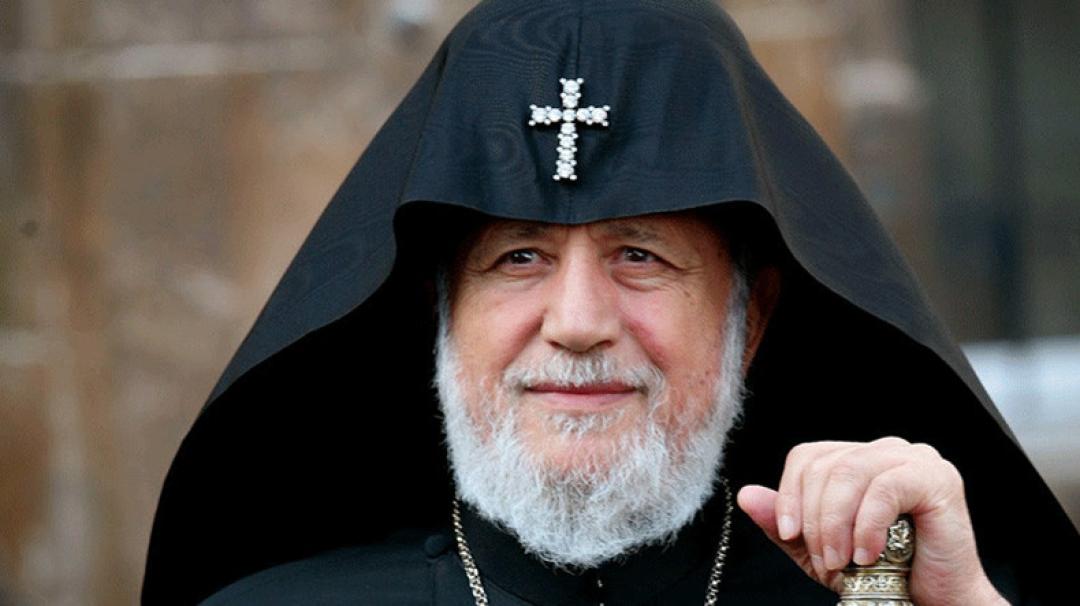
Political crisis in Armenia: Church asks for Pashinyan’s resignation

On 8 December, the supreme head of the Armenian Apostolic Church Catholicos Garegin II called the country’s Prime Minister Nikol Pashinyan to resign and for snap parliamentary elections to be held.
Garegin said that Pashinyan lacks popular trust after the “disastrous” war in Nagorno-Karabakh. He said the PM should step down to prevent violent unrest and end what he called a “deep political crisis” in Armenia. He said he made this clear at a face-to-face meeting with the Prime Minister.
He also called on the Armenian parliament to elect a new prime minister and form an interim government of national unity. “Only a government trusted by the public and made up of professionals can settle issues facing our people, restore national unity and solidarity, and organise pre-term parliamentary elections representing an undisputed necessity,” he said. A similar call was expressed by the Lebanon-based Catholicos Aram I.
Meanwhile, the opposition parties in the country started their nationwide campaign of “civil disobedience,” following Pashinyan’s rejection of the ultimatum (Caucasus Watch reported). The leader of Armenia’s Revolutionary Federation (Dashnaktsutyun) Ishkhan Saghatelyan urged Armenian security forces not to “execute Pashinyan’s illegal orders and use force against the people.”
Shortly afterwards, groups of opposition activists, chanting “Nikol traitor!” and “Armenia without Nikol!” began blocking streets in various parts of Yerevan. Riot police intervened to unblock them and tried to prevent further traffic disruptions. They scuffled with protesters at some street intersections. Dozens of protesters were detained on the spot. A small group of opposition activists picketed the National Security Service headquarters in the Armenian capital to condemn what they call politically motivated criminal investigations targeting opposition figures. Other protesters paralysed the work of Yerevan’s metro system for more than an hour. Similar protests were reported in Gyumri, Vanadzor and several other Armenian cities.
The parliamentary opposition Bright Armenia party unveiled their 13-point road map to overcome the situation in the country. The first step of this roadmap foresees Pashinyan’s resignation, followed by an election of a new prime minister by the parliament. Then, a transitional government will be formed consisting of people who have succeeded in their fields and who could strengthen the Armenian-Russian relations. Then, it must initiate negotiations on the vague provisions of the statement signed between Armenia, Azerbaijan and Russia on 9 November. This is to be followed by the resumption of negotiations under the aegis of the OSCE Minsk Group co-chairs on the final consolidation of Nagorno-Karabakh’s right to self-determination.
Among the priorities of the roadmap were also the exchange of prisoners and bodies of dead soldiers as well as border demarcation between Armenia and Azerbaijan. The consolidation of the potential of Armenia Diaspora in Karabakh, stabilisation of the internal situation, restoration of public solidarity, elimination of calls for violence and rhetoric of hatred were also outlined. The new government would also need to restore and strengthen state institutions with the focus on law enforcement agencies and restoration of public security. The new government would also need to organise an international donor conference with the participation of the USA, China, Russia, EU countries, Iran and Arab countries to attract at least $1 billion to repair the damages from the war.
The Armenian President Armen Sarkissian sent a letter to his Russian counterpart Vladimir Putin in regard to support for the demarcation of the border between Armenia and Azerbaijan. In his letter, Sarkissian expressed gratitude to the President of Russia once again for the efforts that helped lead to the cessation of hostilities in Nagorno-Karabakh. Sarkissian also stated that there was still a potential risk of the emergence of new disputes between the parties due to the issue of demarcation. He asked Putin to support the process of border demarcation and completion of the process to hinder further escalation and negative developments.
As for Pashinyan, it was reported that he met with the US ambassador to Armenia Lynne Tracy. According to the official statements, the speakers exchanged views on the prospects for the development of Armenia-US relations and touched upon the developments of the Nagorno-Karabakh conflict and the created situation.
See Also


Simonyan: “Armenia Should Trade with Turkey and Azerbaijan Instead of Closing Borders”

Mirzoyan Meets US Deputy Assistant Secretary Joshua Huck

Azerbaijani President Holds Talks with UAE and German Business Delegations on Economic Cooperation

Grigoryan Confirms Armenia’s Readiness to Dissolve OSCE Minsk Group Upon Peace Treaty Signing

